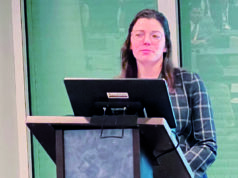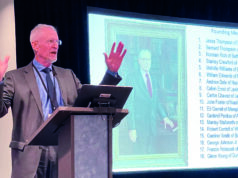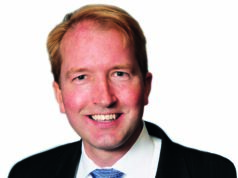 Like most older surgeons, my residency and trauma fellowship years at Grady Hospital— part of Emory University School of Medicine—remain a blur. With frequent, every-other-day 24-hour call, this coincided with the first three years of my oldest child’s life.
Like most older surgeons, my residency and trauma fellowship years at Grady Hospital— part of Emory University School of Medicine—remain a blur. With frequent, every-other-day 24-hour call, this coincided with the first three years of my oldest child’s life.
As I recall, the term work-life balance was not yet born. But it appears that my instinct to value time over money upon starting practice was spot-on. My epiphany—which came much later in life—that I was choosing time over money is not new. Benjamin Franklin is famously supposed to have said, “Time is money,” although the context was probably different.
I have written before about having prematurely added three partners in private practice, dismissing advice that loss of income would be consequential. We mutually agreed to free each other for family events during the day or on call, even during a procedure. Operative consents were obtained for all four surgeons. Patients understood prior to surgery that we were interchangeable unless otherwise requested. One associate would substitute for another midway through an endarterectomy, for instance, and then take on the role of speaking to the family. This mode required us to have complete trust in one other, in addition to reciprocity.
As senior partner, my actions were intentional. This then allowed us more time with our families and to see our children grow up. We took eight weeks of vacation, working hard while one of the other surgeons was away. Times have changed, and it may not be possible to duplicate this practice as an employed surgeon. Yet, none of us has regretted our decision.
It is no secret that physicians are burning out, partly because there is not enough time in an average workday to care for patients, complete medical records, answer emails, fight with insurance carriers, finish mandatory computer-based learning modules, complete continuing medical education hours, and serve on local and specialty society committees.
ADDED FACTORS
Furthermore, if we are in academic surgery, our duties also include teaching, lecturing, writing grants, working on promotions and doing clinical research, among other tasks.
When physicians are asked if they are frequently rushed, 78% of hospital/corporate-owned and 70% of physician-owned/independents agree. I am surprised it is not closer to 100%. The heightened demand for data reporting to support quality metrics and the push to generate revenues for employers in healthcare is taking the joy out of practicing medicine. Why is it that the sacrifice of time is always on the personal side?
We know that time and money are fungible, but extra time spent at work is irrevocably taken from our families. A recent Gallup survey asked people about whether they have enough time or what social scientists call “time affluence.” The survey showed that 80% of Americans lack the time they need to accomplish their goals each day. Some 40% of physicians in a burnout survey claimed that their work did not leave them enough personal or family time.1
Some physicians can afford to “buy” time with money. The use of babysitters and nannies are examples of this. However, research such as a study of 800 Dutch millionaires informs us that although buying time is correlated with well-being, almost half did not spend money to buy time. Interestingly, the least wealthy participants benefited the most from spending money on time-saving purchases.2
The authors also maintain that reports of greater overall well-being cannot be explained by income, education, age, marital status, number of children living at home, or number of hours worked per week. The bottom line is that money does allow us to hire time-saving services, socialize more, value relationships, and thereby reduce stress. Unfortunately, children are usually born when surgeons are either in training or busy starting a career and practice. Later, we may be able to spend hard-earned money to buy time.
AFFECTIVE
Of course, many people have both time affluence and money. This may not be true for the average active surgeon paid essentially by the hour (work RVU per hour). But does more money provide more happiness? Is it logarithmic? Nobel Prize winner Daniel Kahneman, PhD, and colleagues at Princeton University, looking at affective measures, only noted that emotional well-being does rise with log income but did not increase beyond an annual household income of about $75,000.3 Affective happiness considers positive or negative emotions such as peace and joy experienced daily or in the recent past. Beyond that, more happiness may be experienced if additional time is being added to daily life.
There are suggestions to deal with the consequences of burnout other than the tired term “resilience.” I would favor a dose of preventive medicine. One thought has been to offer physicians time as an alternative to money. Stanford University researchers reported a pilot time-banking study in which physicians were rewarded with vouchers only for “time-saving” services. Voucher recipients related better work-life balance and described themselves as less likely to quit compared to other physicians.4
Gregory Gilbert, MD, author of the study, tells me that for a modest investment from the department, faculty can choose services like laundry or cleaning when they bank time put in for teaching responsibilities, for instance. Systems can still base it off wRVUs, although I have objected to the wRVU measure previously as a sole metric of compensating us. Financial incentives based entirely upon wRVU production is a step in the wrong direction.
AMPLE TIME
Taking enough time off from work is important. The 2020 Medscape General Surgeon survey showed only 20% of physicians take five or more weeks of vacation and a third only take one to two weeks off annually.5 In the 2019 survey, 6% of burned out physicians took two weeks or less of vacation each year. If surgeons are negotiating a new job, asking for more time off rather than money is worth considering. In another Medscape survey, about 50% of physicians would take a salary reduction to achieve a better work-life balance, with women and millennials more likely to do so.
Economists use the term marginal utility to determine how satisfaction levels influence consumer choices. The idea being that the consumer buys more of a product or service until there is no further need, or declining satisfaction for each additional unit of the product or service. In other words, there is zero marginal utility when more money gives us no further satisfaction. When we reach zero is entirely up to us, because our priorities—such as paying off debt, wants and needs—are different.
Over one-third of surgical residents and the average medical student carry an educational debt of over $200,000. Foregoing additional income may not be realistic until a significant part of the debt has been paid off. What is helpful in the long term is maintaining a modest lifestyle and keeping wants under control till there is recognition of zero marginal utility.
Having made plenty of mistakes early in my career, I am satisfied that, for me, the extra time—rather than income—was worth it. If you are undecided, ask and then listen to your children, spouse or partner. The answer may also lie in the mirror.
REFERNCES
- Shanafelt T. et al. Burnout and satisfaction with work-life balance among U.S. physicians relative to the general U.S. population. Available at https://jamanetwork.com/journals/jamainternalmedicine/fullarticle/1351351.
- Smeets P., Whillans A.V., Bekkers R., Norton M.I. Social Psychological & Personality Science. (Pre-published online June 25, 2019). https://doi.org/10.1177/1948550619854751.
- Kahneman D., Deaton A. (2010). High income improves evaluation of life but not emotional well-being. Proceedings of the National Academy of Sciences, 107(38), 16489-16493. doi: 10.1073/1) pnas.1011492107
- Schulte B. Time in the bank: A Stanford plan to save doctors from burnout. Available at https://www.washingtonpost.com/news/inspired-life/wp/2015/08/20/the-innovative-stanford-program-thats-saving-emergency-room-doctors-from-burnout/
- https://www.medscape.com/slideshow/2020-lifestyle-general-surgeon-6012497
Bhagwan Satiani, MD, is professor of clinical surgery in the division of vascular surgery, the department of surgery, in the Ohio State College of Medicine at Ohio State University in Columbus. He is an associate medical editor of Vascular Specialist.












Student 0f economics